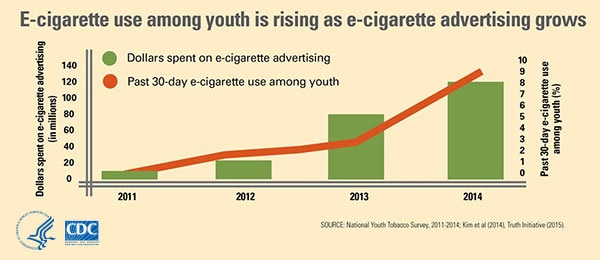Policy Solutions
Upstream solutions, as they relate to tobacco product waste (TPW), are policies that either directly, or indirectly, reduce demand for environmentally damaging tobacco products.
Tobacco products produce a myriad of upstream harms at nearly every stage of production. One in eight trees harvested worldwide is used in tobacco production, making the industry a significant contributor to global deforestation. By cutting down nearly 9 million trees annually, which act as a carbon sink, the industry is contributing the equivalent of up to 5 percent of global greenhouse gas emissions worldwide. The industry is also responsible for numerous human rights violations, most notably the use of child labor.
In the United States, the Human Rights Watch reports that the industry often hires children to work on tobacco farms, exposing them to nicotine, (an acutely hazardous waste that when absorbed through the skin can cause dizziness, nausea, vomiting, headache, and sleeplessness), pesticides, and excessive heat. Post-consumer cigarette filter waste also leaches microplastics and heavy metals such as lead and cadmium into the environment, harming aquatic ecosystems and contaminating drinking water supplies.
Source: Oren1*, Eyal, et al. “Effects of Unfiltered Cigarettes on Smoking Behavior and Toxicant Exposure: Protocol for a Randomized Crossover Clinical Trial.” JMIR Research Protocols, JMIR Publications Inc., Toronto, Canada, https://www.researchprotocols.org/2020/12/e19603.
2020 Surgeon General Report; FDA has not approved e-cigarettes as a cessation tool
E-cigarettes are being used by youth and young adults at alarming rates. According to the 2021 Annual National Youth Tobacco Survey, 9.3% of middle and high school students reported using tobacco products in the last 30-days. 7.6% of students reported using e-cigarettes. E-cigarette use was especially high amongst LGBTQ youth with 14.2% of e-cigarette users identifying as gay, lesbian, or bisexual and 18.9% identifying as transgender. The majority (85%) of e-cigarette users reported use of flavored tobacco products and over half (53%) reported using disposable products, Puff Bar being the most common. These dangerous products, which are not designed for cessation as the tobacco industry has led users to believe, are being marketed to youth. Nearly 3/4 of youth (75%) reported exposure to advertising or marketing for tobacco products.
National Youth Tobacco Survey, 2011-2014; Kim et al (2014), Truth Initiative (2015).
The industry has launched greenwashing campaigns, in which they market goods as “environmentally friendly” to divert attention from harmful environmental impacts. Phillip Morris was the founding member of Keep American Beautiful, which received millions of dollars from corporate sponsors PepsiCo, Anheuser Busch, Coca Cola, Home Depot, McDonald’s, and Georgia-Pacific. While asking members of the community to “take responsibility for maintain[ing] clean, green, and beautiful spaces may seem harmless, these campaigns shift responsibility from polluting corporations to the consumers while actively lobbying against environmental policies.
Tobacco Product Waste Model Policies
The toolkit (featured below) was prepared by the Public Health Law Center and includes an overview of Tobacco Product Waste with three unique policy options complete with findings, definitions, and other important considerations.







